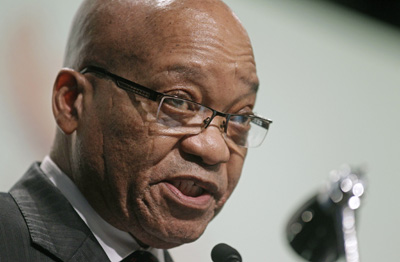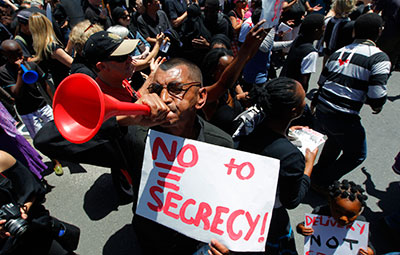
South African Secrecy Bill kept at bay, for now
South African journalists and civil society groups were uneasy this month amid rumors that the Protection of State Information Bill, commonly known as the Secrecy Bill, would pass the Upper House of parliament, the last step before a presidential signature. Since 2008, journalists and civil society have lobbied against the bill, which many fear would…

#ANC100 debate lays bare divisions over South Africa media
On January 8, 1912, South African intellectuals–including pioneering black newspaper publishers Pixley ka Isaka Seme, editor of Abantu-Batho, and John Langalibalele Dube, editor of Ilanga lase Natal–formed Africa’s oldest liberation movement, the African National Congress (ANC), in the Wesleyan Church in Bloemfontein.
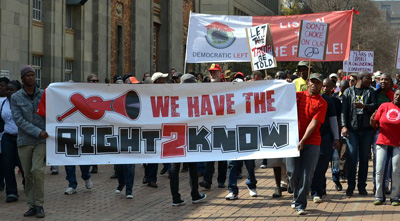
Mission Journal: Secrets bill spurs South African press
Irrespective of whether South Africa actually implements the most draconian parts of state secrets legislation now under consideration, the media in the continent’s most open democracy already feel under threat. The prospect of 25-year jail sentences for journalists publishing “classified” information has galvanized disparate news outlets and journalists groups to work together like never before.
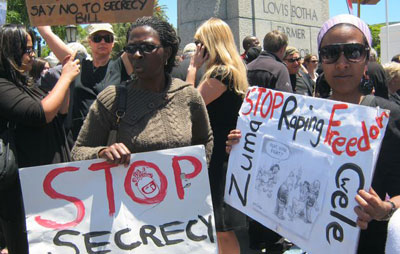
South Africa lower house passes information bill
New York, November 22, 2011–The South African National Assembly today passed an information bill which would sanction unauthorized possession and publication of classified state information with a prison term of up to 25 years, according to news reports. The Committee to Protect Journalists calls on the upper house of parliament to reject the bill, which has…
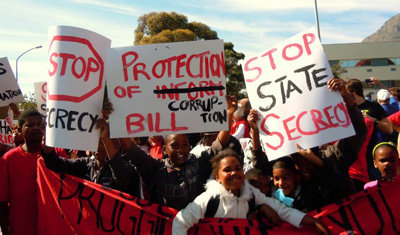
South Africa’s ruling ANC pulls secrecy bill
New York, September 20, 2011–The Committee to Protect Journalists is relieved by Monday’s decision by the parliamentary majority of South Africa’s ruling party to withdraw a controversial bill from consideration pending further consultation with public interest groups over its contentious clauses.
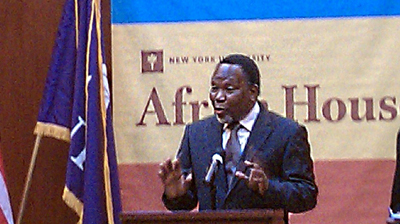
At NYU, South Africa’s Motlanthe defends press policies
On Monday, in a public lecture at New York University, South African Deputy President Kgalema Motlanthe described as irreversible the democratic gains made since the end of apartheid, including the advancement of press freedom. “We have a constitution which guarantees basic human rights such as freedom of association, freedom of the press, and the independent…
Attacks on the Press 2010: Africa Analysis
Across Continent, Governments Criminalize Investigative Reporting By Mohamed Keita Across the continent, the emergence of in-depth reporting and the absence of effective access-to-information laws have set a collision course in which public officials, intent on shielding their activities, are moving aggressively to unmask confidential sources, criminalize the possession of government documents, and retaliate against probing…
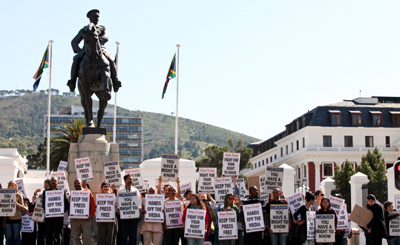
South Africa resumes debate on secrecy bill
Parliamentary hearings on South Africa’s Protection of Information Bill resumed last week with heated debate over provisions threatening to restrict press freedom and access to information. For journalists, much uncertainty remains over the final product and when it will be completed.
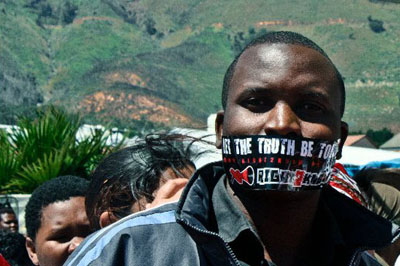
South Africans end week of “secrecy bill” protests
On Wednesday, just before South African lawmakers were scheduled to debate amendments to the controversial Protection of Information Bill, thousands of protesters marched to the gates of Parliament in Cape Town to oppose the measure, which they called an “apartheid-style secrecy bill.” The marchers represented a broad coalition of media, academia, trade unions and civil…
